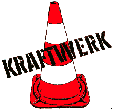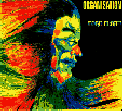|
|

|
 1968, when it all started If you really would like to understand the history that created the Legends, you must understand the situation in post-war Germany in the end of the sixties. Most German bands played cover versions of British or American songs and they only added some foreign accents. A new generation of young West Germans where living in the shadows of the "cold war" and the tension between East and West. There was a will to recapturing a German cultural identity and that caused a new wave of music and films. There are three bands that has a lasting influence on todays music and those experimental legends include Tangerine Dream (I was once a member of their Fan-Club), Can and of course Kraftwerk. Can, the first experimental band The first band to emerge was Can and they where formed in Cologne in 1968. Most of the members where classically trained and they performed music with improvisational layers of sound together with a steady rock beat as a base. This new "rock like" music with little or no structure sounded unlike everything that hit the charts. This music inspired many German bands and UK music press tagged it as "Kraut Rock". Kraftwerk arised from this experimental explosion as the natural link between electronic pop music and German avant-garde. Organisation, a mixture of sounds The history of Kraftwerk begins when Florian Schneider-Esleben and Ralf Hütter met in Remschied, near Düsseldorf, at the Kunstakademie (Academy of Arts). They are both classically trained musicians and they went on to study at the Düsseldorf Conservatory. They formed a group called Organisation whose early music was a mixture of sounds, feedback and rythm. The band took part in various performances at art galleries and universities. 1969 Back in 1969 the experimental wave of German music was creating some commercial interest and recording deals where signed. This was a world which was very different from the UK or USA rock scene. Many of the German music students considered themselves as performance artists who were making a musical art statement. One of the most notable influences on all early German rock groups was Karlheinz Stockhausen. As leader of the Darmstadt school, his influence on the electronic music field was immense. His experiments with electronic sounds were also influential on rock musicians further afield - his picture being one of those included on the cover of The Beatles' Sgt. Pepper LP. I have heard that it exists a bootleg with a concert featuring Stockhausen and Kraftwerk playing together in '71 or '72. The bootleg has six tracks, three Kraftwerk songs played by Stockhausen and three Stockhausen songs played by Kraftwerk! 1970 In early 1970 Ralf and Florian chosed to record a LP as members of the band Organisation. The line up was Fred Monics on drums, Butch Hauf on bass, Basil Hammoudi on vocals, Florian on flute and violin and Ralf on organ. They signed to the English label RCA and that was an unexpected step for a German band in those days. The front cover featured a pseudo-mythological drawing by the mysteriously named Comus, of the sort that was fairly common place on LP sleeves in the early '70s.
KlingKlang, the birth of a studio
Back to homepage This page hosted by |


